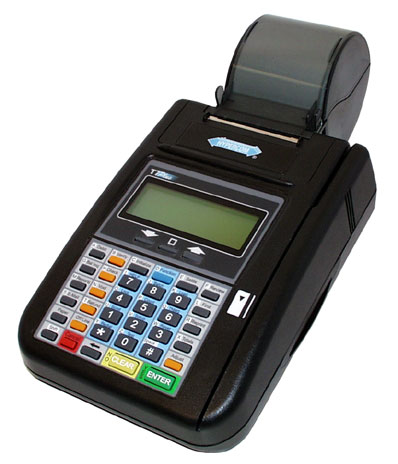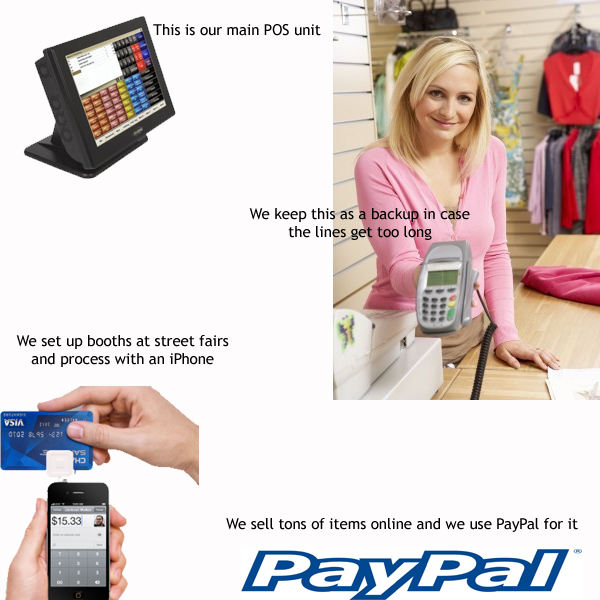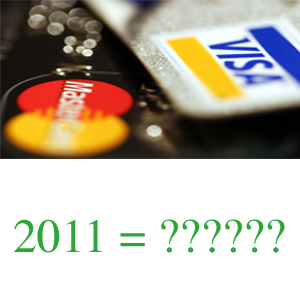MPR Authored
Industry Leaders Speak Out on Merchant Cash Advance Syndication
June 30, 2011
Most ISOs have the option and ability to co-fund deals with the funding sources these days, a topic we discussed back in December in: The Direct Funder Model is SOOOO 2009. That was back when everyone was doing it but no one was talking about it. Now everyones talking about it in the latest micro article by ISO & Agent Magazine, Cash Advances: ISOs Can Earn a Piece of the Action. It discusses syndication with the leaders of the industry’s most prominent firms.
Small Business Failure Rates a Data Point for MCA
May 24, 2011
If you’re a Merchant Cash Advance (MCA) firm, you probably already know which regions pose a higher risk of default. CNN recently analyzed a report by Dunn and Bradstreet on states with the highest and lowest business failure rates:
- California (69% higher than the national average)
- Nevada (65% higher than the national average)
- New Hampshire (38% higher than the national average)
- Tennessee (36% higher than the national average)
- Colorado (33% higher than the national average)
- North Dakota (67% lower than the national average)
- Vermont (47% lower than the national average)
- Iowa (40% lower than the national average)
- Wyoming (40% lower than the national average)
- Kansas (39% lower than the national average)
 Small business failure rates rose overall by 40% from 2007 to 2010. That’s an incredible increase but not surprising given the time period. So what does the data mean for an industry focused on banking the unbankable businesses?
Small business failure rates rose overall by 40% from 2007 to 2010. That’s an incredible increase but not surprising given the time period. So what does the data mean for an industry focused on banking the unbankable businesses?
Personal credit scores have been weighted more heavily in MCA underwriting over the last year or so. Once celebrated as credit-blind financing, most funding providers today have minimum score requirements. This began with arbitrary benchmarks such as 500 or 550 but is now resembling a banker’s analysis. “Your client has a 620 FICO but it’s a weak 620 so we’ll pass” is one such phrase that MCA brokers are just beginning to encounter, leaving them stunned and wondering how this product’s high cost seemingly only targets those with excellent credit. This situation has created A Fork in The Merchant Cash Advance Road.
Small business failure doesn’t happen overnight. It begins with a few missed payments. At that point there is either a recovery or a continuation of falling behind. Low credit scores occur in North Dakota and California but a business in North Dakota with 520 FICO is probably more sustainable than one in California with the same score. Therefore those in the lowest failure states should be extended leniency on credit requirements. Afterall, the goal of the MCA industry is to fund sustainable businesses, not those with the best credit report. The two don’t always go hand in hand.
This outlook isn’t new and would probably serve well in a data points based underwiting system. The CEO of Canadian based AdvanceIt was previously cited on this topic, though his firm futher narrows their data points to the city level. Any data that might impact the outcome deserves to be considered, no matter how broad.
The MCA product is most often a purchase of future sales, which does not require conscious payments on the seller’s (business’s) part. A percentage of sales are recovered automatically so the top priority should be to ensure those sales don’t stop.
If you’re a business owner in Iowa (3rd lowest failure rate) with bad credit, don’t get discouraged. You’re still a viable candidate for a traditional MCA. You just need to find the right firm for you. Ask your sales representative what requirements there are and stay away from those that respond with an arbitrary credit score. The smartest firms use data points and data says you’re not that likely to fail…
– The Merchant Cash Advance Resource
Merchant Cash Advance Diminished by Growth of Payment Technologies
May 15, 2011
Technology will be the end of us all
When bank lending dried up, Merchant Cash Advance (MCA) providers fulfilled the need to keep America’s small business owners going strong. By withholding a percentage of each credit/debit card sale automatically, there was no need to worry about a client’s ability to make payments. Without the risk of late payers or non-payers, MCA providers singlehandedly eradicated credit score from the underwriting guidelines. Or so they thought.
Only a small percentage of businesses in default actually close their doors. Circumventing the MCA provider’s merchant processor or incentivizing customers to pay with cash are issues that have plagued the industry for years. While this would constitute a clear breach in the sale of one’s future receivables, it’s not always a deliberate act of malice. However, there is a direct correlation between the frequency of breaches and *surprise* declining credit score.
But in the instances without malice, such as if damaged POS equipment prevents the flow of processing, there’s not much a MCA provider can do other than help fix it. These gaps in collection affect the bottom line and lead to upward pressure on costs or tighter restrictions on approval, two outcomes that nobody wants.
And as if there already wasn’t a strain, changes in payment technology are quickly eroding the MCA industry’s turf. The credit/debit card sales of a business aren’t exactly limited to one of these:

Now there are options, lots of them. In today’s world you can accept electronic payments with almost anything, a conundrum for MCA providers aiming to collect a percentage of all of it. And how about those routine PCI compliance upgrades? There are countless businesses with a basement full of old credit card machines that could be plugged back in, put back into service, and freely used to circumvent their financial obligations.
Take this clothing retailer for example. She qualified for an advance of only $5,000 but when it came time to convert the merchant account, the process wasn’t so easy:

Nearly all of the transactions conducted inside the store happen through the touch screen POS. The merchant statements reflect consistent historical sales of nearly $4,800 per month, instilling the belief that the future won’t be much different. But when the customer lines get too long, there’s a backup credit card terminal that they pull out from under the counter that still has an active account with a previous processor. Around the holidays, they dig out the old Tranz model terminals from the basement and use them too. For street fairs and trade shows, they attach their Square to their iPhone and process on the go. And when it comes to their website and Ebay, PayPal is their preferred method of payment.
This doesn’t mean the touch screen POS won’t continue to see $4,800 worth of action per month, but the situation doesn’t inspire a lot of confidence if the goal is to collect a percentage of their credit/debit card sales. What if they occasionally use Square inside the store? What if phone orders are punched into PayPal? These things may happen inadvertently or simply because their customers demand it.
To firmly secure a purchase of future sales, the MCA provider would need to do the following:
- Convert the touch screen POS system (which will very likely come with a fee from the POS reseller)
- Reprogram their backup terminal
- Reprogram all the old terminals collecting dust in the basement
- Force the return of the Square and replace it with their own iPhone processing attachment
- Delete PayPal from the HTML of the business’s website
- Instruct them to stop conducting business on Ebay
- Cancel the PayPal account altogether and replace with an authorize.net virtual interface or something equivalent

That’s a lot of effort for $5,000 but doing anything less is a gamble. That’s another reason why MCAs are more expensive than bank loans. Without set fixed payments, they are extremely vulnerable to economic ups and downs and now the explosion of payment alternatives.
Rather than stay ahead, the industry is becoming more fractured as evident by the rise of new funding sources such as Kabbage, that lends against future PayPal sales. It’s innovative but vulnerable. Kabbage depends on the success and status quo of PayPal for survival, a characteristic that is not likely to carry them far. Similarly, MCA providers are dependent on withholding a percentage of future sales, an uneasy task in a world where the point of sale itself is changing.
Innovation in the MCA space has gone as far as automated bank debits and a lockbox. One depends on the merchant’s use of a single bank account and the other is equally exposed to the issues we’ve discussed.
Which of course begs the question: If electronic payments are becoming more elusive to capture, how can the MCA industry survive? The obvious answer is to transform the product itself into a loan. Secure it against collateral and have the credit bureaus at your disposal. Breaches will become far less likely and electronic payments less elusive when there are actual consequences involved. It’s a dreaded word and one MCA representatives have spent years avoiding, but according to the state of California, it’s probably a loan already anyway.
As MCA providers struggle to keep up with payment alternatives, banks are wondering when we’ll all wake up from the “it’s not a loan” euphoria. If the goal is to provide capital and get more back, reprogramming a terminal isn’t going to cut it. How many free hours can America Online offer to bring people back to their dialup internet service? Technology changed and the age of AOL ended. So too may the age of Merchant Cash Advance…. at least in its current form.
– The Merchant Cash Advance Resource
What is Square Credit Card Reader?
May 6, 2011
We’ve heard of Square, we’ve read about Square, and we think the Square concept is cool. The writers of this blog have yet to encounter a business actually using one though. On March 2nd, Square announced that $1 Million was being processed through their device on a daily basis. That’s not a whole lot but we’re interested to see if it really catches on.
deBanked
The Most Sincere Form of Flattery – MCA Forums News
April 17, 2011
On April 16th, 2011, the MCA Forums announced their plan to expand content beyond the realm of a simple discussion board. Traditionally a place for Merchant Cash Advance industry insiders to converse, it seems the site will be adding “resources.” It’s an interesting word of choice considering there’s already a Merchant Cash Advance Resource, and that’s us. Perhaps they are trying to capitalize on our success since there is no shortage of that word in their public statement. As seen here:
“We would like to thank you for making MCA Forums the largest online community for your Merchant Cash Advance Resources & Merchant Cash Advance Networking! We’d love to hear your feedback. MCA Forums will be adding more valuable content, resources, and upgrades to the MCA Forums over the course of the next few months. Some key items we’d like your feedback on:
- Your ideas and resources you’d like to see on MCA Forums
- Contribute articles and resourceful information our readers would find of value in exchange for FREE backlinks and promotions to your services”
They say imitation is the most sincere form of flattery and we’re happy to see them expand their somewhat popular site. Spreading the word about Merchant Cash Advance, sharing perspective, and providing the most accurate information is key to mainstream acceptance of this financial product. The MCA Forums success should benefit the industry as whole.
Similar to us, but yet strikingly different in the sense that they are revenue driven, whereas we have stuck by our mantra of Free Unbiased Resources. There is a cost to advertise on the MCA Forums. While it’s true, there are a few google banners on our site to cover the cost of web hosting, we remain committed to our independent outlook. It has served us well. Founded more than two years after the Forums, the Merchant Cash Advance Resource ranks better with visitors according to Alexa.
Comparatively, our readers peruse through 6x more pages on each visit, spend more time per page, and are twice as likely to navigate the site beyond the initial page they accessed. With our thousands of visits every month, funding providers, ISOs, and lead sources mentioned throughout our site benefit from click-throughs on a daily basis. we enjoy doing this at no cost to any of the parties involved.
The Merchant Cash Advance Resource is a member of the U.S. Chamber of Commerce, has authored over 100 industry relevant articles, and is proud to provide the public with unbiased information. Other sites may try, but there is only one place to get your “resources,” and that’s here. Thanks for reading!
– The Merchant Cash Advance Resource
Merchant Cash Advance Forums Goes Quiet
March 31, 2011 The Merchant Cash Advance Forums is an old discussion board for those working within or looking into the Merchant Cash Advance industry. On March 25th, 2011 the Forums implemented stricter account policies that now require members to submit detailed information about who they are and who they represent. This includes:
The Merchant Cash Advance Forums is an old discussion board for those working within or looking into the Merchant Cash Advance industry. On March 25th, 2011 the Forums implemented stricter account policies that now require members to submit detailed information about who they are and who they represent. This includes:
- Real name
- Company you work for
- Company’s address
- Your phone number
A public notice on the forums states “For the sake of adding value and integrity to the MCA Forums, an additional layer of moderation as well as basic data collection have been implemented. Members MUST now complete their private profile with their basic contact information. This required information is confidential, and other members will NOT be able to view it. Data collected is NEVER sold to third parties remains strictly confidential.”
And since this went into effect, the bustling discussion board has been for the most part a ghost town. While a few active participants proudly make their company affiliations known, most users hide behind a nickname for privacy. This certainly makes sense from a personal standpoint (the internet is dangerous!), but it also helps protect employers from liability should one of their employees openly discuss their opinions.
For example: John Doe states his affiliation with ABC Funding Co. upon registering with the site and posts “tHe iNdUsTrY iS dOoMeD!” Many of the other forum members may interpret that to mean ABC Funding Co. is in serious trouble or because of the way John Doe posts, that ABC Funding Co. does not employ very intelligent people.
Though there is an explicit promise of confidentiality, this industry has bred many stone cold skeptics over the years. If Facebook can get someone in trouble, anything can.
Of course, we may be wrong completely and the dull conversation could be a result of more time spent working, there being little to talk about, or an unwillingness to talk as the news of what is happening in California spreads.
This is by no means an attack on the MCA Forums. We used to check in on it pretty often. We recommend anyone in the MCA, payments, or banking industry to sign up to for DailyFunder.com now as of 2013. Just be careful. Anything you post on the internet can be linked back to you by someone, somehow.
Complete Merchant Cash Advance Industry Statistics 2010
January 9, 2011
We have gathered data on all 50 states and the District of Columbia and put together the most comprehensive statistics for the Merchant Cash Advance Industry in 2010!!!
What is a Merchant Cash Advance?
Where was this data pulled from?
Figures were obtained partially by counting the number of UCC filings with many Secretary of State Databases. We complemented this with statistics from the U.S. Bureau of Labor, U.S. Census, and a little bit of intuition.
Are these figures exact?
No. These are not exact figures and our results should not be used as a basis for any financial decision. These are very good estimates based on real data. We are not responsible if this information is misused, nor are we responsible for any damages as a result of this information’s publication. For liability purposes, these figures should be considered purely the opinion of this site’s authors.
Was the data manipulated to put some firms in favorable or less favorable light?
No. This site seeks to be an independent, unbiased community for the Merchant Cash Advance industry. The numbers are what they are.
Was any personal, secretive, or confidential information obtained?
No. No Merchant Cash Advance provider or business owner had any personal or private information at risk. All data was obtained legally and all data is already of the public record.
I have purchased UCC Secured Party marketing lists and there are hundreds of Secured Party names that you don’t seem to have listed on your site. Are you missing a whole chunk of the market?
For the purposes of this study, we purchased some of these lists ourselves. We found that most of the secured parties listed on there were not actually MCA providers. Though they carried names that incuded the terms ‘capital’, ‘advance’, ‘funding’, a lot of them were firms that actually engaged in invoice factoring, A/R factoring, advances on lottery winnings, loans, and leasing. If you’re convinced otherwise, you can submit any secured party names to us by e-mail at webmaster@merchantprocessingresource.com
I clicked on a state and the total number of UCC Filings does not equal the total of the firms you broke down. How come?
We realize that some firms do not record transactions with a UCC filing or file under a name that we have not discovered. The hard data is broken down, but the total for the state is a result of further analysis.
Are Merchant Cash Advance providers that fund a lot of businesses better than the ones that only fund a few?
Not at all and our rankings should be not perceived that way! Every provider should be judged on their own merit. Some firms choose to be small. The amount of businesses funded per year or per state do not in any way indicate the quality of the deal or the business’s experience. Think Bank of America (Millions of Customers) or a small town community bank (hundreds of customers). Business owners should do their own due diligence.
I am a Manger at or Partner at a Merchant Cash Advance firm that is ranked in these statistics. The figures you have are wrong and I want to submit our actual figures / I want you delete our company name from this publication.
Managers and Merchant Cash Advance firm owners can reach us at webmaster@merchantprocessingesource.com. Keep in mind these results were put together from data that is already public and accessible. Our site receives hudreds of visits a day(and we’re still fairly new), therefore we are increasing your firm’s exposure. We are an advocate of the Merchant Cash Advance financial product and believe any Direct Funder benefits from their information here.
=============================
MERCHANT CASH ADVANCE STATISTICS 2010
Funded Amount Assumes Average Merchant Cash Advance Deal is $25,000
| State | # of MCA Deals | Dollars Funded |
|---|---|---|
| Arizona | 369 | $9,225,000 |
| Colorado | 503 | $12,575,000 |
| Hawaii | 53 | $1,325,000 |
| Ohio | 524 | $13,100,000 |
| Oregon | 237 | $5,925,000 |
| Rhode Island | 91 | $2,275,000 |
| Georgia | 716 | $17,900,000 |
| New York | 1,273 | $31,825,000 |
| Washington | 355 | $8,875,000 |
| Texas | 1,634 | $40,850,000 |
| California | 2,768 | $69,200,000 |
| Alabama | 311 | $7,775,000 |
| Alaska | 46 | $1,150,000 |
| Arkansas | 199 | $4,975,000 |
| Connecticut | 218 | $5,450,000 |
| Delaware | 56 | $1,400,000 |
| Washington D.C. | 19 | $475,000 |
| Florida | 1,522 | $38,050,000 |
| Idaho | 135 | $3,375,000 |
| Illinois | 769 | $19,225,000 |
| Indiana | 440 | $11,000,000 |
| Iowa | 254 | $6,350,000 |
| Kansas | 218 | $5,450,000 |
| Kentucky | 311 | $7,775,000 |
| Louisiana | 256 | $6,400,000 |
| Maine | 108 | $2,700,000 |
| Maryland | 362 | $9,050,000 |
| Massachusetts | 349 | $8,725,000 |
| Michigan | 650 | $16,250,000 |
| Minnesota | 425 | $10,625,000 |
| Mississippi | 180 | $4,500,000 |
| Missouri | 425 | $10,625,000 |
| Montana | 93 | $2,325,000 |
| Nebraska | 152 | $3,800,000 |
| Nevada | 170 | $4,250,000 |
| New Hampshire | 99 | $2,475,000 |
| New Jersey | 527 | $13,175,000 |
| New Mexico | 124 | $3,100,000 |
| North Carolina | 613 | $15,325,000 |
| North Dakota | 62 | $1,550,000 |
| Oklahoma | 274 | $6,850,000 |
| Pennsylvania | 895 | $22,375,000 |
| South Carolina | 303 | $7,575,000 |
| South Dakota | 80 | $2,000,000 |
| Tennessee | 466 | $11,650,000 |
| Utah | 220 | $5,500,000 |
| Vermont | 52 | $1,300,000 |
| Virginia | 457 | $11,425,000 |
| West Virginia | 311 | $2,975,000 |
| Wisconsin | 434 | $10,850,000 |
| Wyoming | 49 | $1,225,000 |
| TOTALS | 20,966 | $524,160,355 |
There were approximately 21,000 Merchant Cash Advance transactions in 2010 for a total of over $500 Million Funded. For the first 11 states listed at the top, you can click the link to view a detailed breakdown by funding provider. The market share percentage stays relatively consistent state to state and therefore we only felt it necessary to include data for 11 states. It should be noted that those states make up 41% of the national population.
For previously released data on the business types most commonly funded, click here.
=============================
NOTE: This study and the results remain the solely owned work of www.merchantprocessingresource.com
If you wish to refer to any data described here for an article or advertisement, you may do so by acknowledging the source and including a link to our site.
– The Merchant Cash Advance Resource
Want to comment? Sign up for a FREE webs.com account. It takes 2 seconds.
Merchant Cash Advance Outlook for 2011
January 2, 2011
Happy New Year! Over the past few weeks we spoke with many Merchant Cash Advance(MCA) industry professionals, read blogs, and scanned forums to find out what is predicted for 2011. Here is what we learned:
—————————-
The number of businesses facing tax liens will rise, making it increasingly difficult for them to obtain a traditional MCA. Their only resort may be “starter” or “decline” programs, which come with low capital and high costs.
Credit card processors(CCPs) will venture into funding their own clients. Over the past few years, CCPs were a necessary third party to a MCA transaction. The CCP would split the business’s batch to allow the MCA provider to collect on their purchased receivables. Their years as a third party have granted them incredible insight into the funding business. In the latter half of 2010, some CCPs tested the waters and funded businesses on their own. In 2011, we will begin to see the role of MCA provider and CCP gradually merge into solitary entities.
Resellers of MCA began to drift away from their dependence on funding providers in 2010. In 2011, there will be a surge in the number of resellers funding businesses on their own. The MCA industry will become largely decentralized and may give rise to new challenges.
Decentralization will lead to greater competition and create downward pressure on costs. Businesses stand to benefit by the likely trend of decreasing retrieval rates and factor rates.
Businesses hanging on by a thread are less likely to obtain funds in 2011. Bank loans were never meant as a means to stave off bankruptcy and neither is a MCA. Most detractors of the MCA industry were business owners on the verge of bankruptcy before obtaining capital. This is not a lifeline. Good businesses grow, bad businesses fail. That’s the way it has to work in order for the economy and capitalism to be functional.
The Federal Reserve’s 12 cent debit fee cap may negatively impact resellers that depend on merchant residuals.
The MCA industry will continue to use less expensive means of marketing. Expensive regional trade shows are becoming less popular and UCC hunting is on the rise.
—————————-

2011 is yet to be told. One thing is for sure, MCA providers are not unlike the businesses they fund. It’s a tumultuous economy and there is no guarantee that we’ll all still be standing in 2012. Remember those who have come before us (look at the bottom of this page). Much luck to all!
-deBanked





























